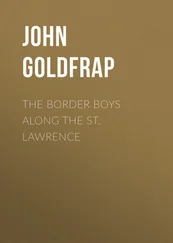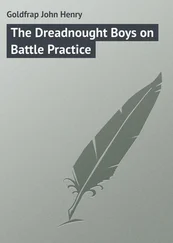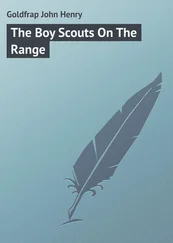John Goldfrap - The Bungalow Boys in the Great Northwest
Здесь есть возможность читать онлайн «John Goldfrap - The Bungalow Boys in the Great Northwest» — ознакомительный отрывок электронной книги совершенно бесплатно, а после прочтения отрывка купить полную версию. В некоторых случаях можно слушать аудио, скачать через торрент в формате fb2 и присутствует краткое содержание. Жанр: Классический детектив, foreign_detective, foreign_prose, на английском языке. Описание произведения, (предисловие) а так же отзывы посетителей доступны на портале библиотеки ЛибКат.
- Название:The Bungalow Boys in the Great Northwest
- Автор:
- Жанр:
- Год:неизвестен
- ISBN:нет данных
- Рейтинг книги:4 / 5. Голосов: 1
-
Избранное:Добавить в избранное
- Отзывы:
-
Ваша оценка:
- 80
- 1
- 2
- 3
- 4
- 5
The Bungalow Boys in the Great Northwest: краткое содержание, описание и аннотация
Предлагаем к чтению аннотацию, описание, краткое содержание или предисловие (зависит от того, что написал сам автор книги «The Bungalow Boys in the Great Northwest»). Если вы не нашли необходимую информацию о книге — напишите в комментариях, мы постараемся отыскать её.
The Bungalow Boys in the Great Northwest — читать онлайн ознакомительный отрывок
Ниже представлен текст книги, разбитый по страницам. Система сохранения места последней прочитанной страницы, позволяет с удобством читать онлайн бесплатно книгу «The Bungalow Boys in the Great Northwest», без необходимости каждый раз заново искать на чём Вы остановились. Поставьте закладку, и сможете в любой момент перейти на страницу, на которой закончили чтение.
Интервал:
Закладка:
“Just at present, though, it’s a little rough,” he admitted.
“Oh, we don’t mind roughing it,” responded Tom. “We’re used to that.”
“So I should imagine from the newspaper accounts I read of your prowess,” said Mr. Chillingworth dryly.
“Oh, they wrote a lot of stuff that didn’t happen at all,” put in Jack.
“Not to mention the pictures,” laughed Mr. Dacre.
“Well,” said Mr. Chillingworth, “if there were some enterprising reporter out here now, he would find plenty to write about.”
“How’s that?” inquired Mr. Dacre.
“Why, you may have heard of Chinese smugglers – that is to say, men who run Chinamen into the country without the formality of their obtaining papers?”
Mr. Dacre nodded.
“Something of the sort,” he said.
“Well, they have been pretty active here recently. Some of the ranchers have had trouble with them.”
“But surely they have notified the authorities?” exclaimed Tom.
“That’s just it,” said Mr. Chillingworth. “They are all afraid of the rascals. Scared of having their buildings burned down, or their horses hamstrung, or something unpleasant like that.”
“Well, if you are the same old Colton Chillingworth,” smiled Mr. Dacre, “I’m sure you do not belong in that category.”
A look came over Colton Chillingworth’s face that the boys had not noticed on that rugged countenance before. Under his brown beard, his lips set firmly, and his eyes narrowed. Colton Chillingworth, with that expression on his features, looked like a bad man to have trouble with. But to Mr. Dacre’s astonishment, and the no less surprise of the boys, his reply was somewhat hesitant.
“Well, you see, Dacre,” he said uncertainly, “a married man has others than himself to look out for. By the way, my wife doesn’t know anything about the troubles. Please don’t mention them to her, will you?”
“Certainly not,” was the rejoinder. “But – ”
A sudden cry from the Chinaman cut his words short. The Mongolian raised a hand, and with a long, yellow finger pointed off to the west. The boys, following with their eyes the direction in which he pointed, at first could descry nothing, but presently, as the sloop rose on the top of a wave, they could make out, in the blue distance, the sudden flash of a white sail on the Sound.
“It’s the schooner, Fu?” asked Mr. Chillingworth eagerly.
The Celestial nodded. No change of expression had come over his mask-like features, but the boys vaguely felt that behind the impenetrable face lay a troubled mind.
Mr. Dacre looked his questions.
“What is there about the schooner particularly interesting?” he asked, at length.
“Oh, nothing much,” said Mr. Chillingworth, with what seemed rather a forced laugh. “Except that she is Bully Banjo’s craft.”
“Bully Banjo?” echoed Mr. Dacre, in a puzzled tone.
“Yes. Or Simon Lake’s, to give the rascal his real name. Lake is the man who is at the present time the real ruler of the ranchers in this district,” said Mr. Chillingworth bitterly. “Dacre,” he went on, “I’m afraid that I have invited you into a troubled region. I’ll give you my word, though, that when I wrote to you things were quiet enough.”
“My dear fellow,” was the rejoinder, “don’t apologize. I myself relish a little excitement, and here are two boys who live on it.”
“If that is the case,” replied the other, with a wan smile, “they are on the verge of plenty – or I’m very much mistaken.”
CHAPTER V.
A NIGHT OF MYSTERY
Soon after the sloop beat up into the shelter of the point, the wind having by this time increased, to what appeared to the boys, to be a mild hurricane. The sky, too, was overcast, and big black clouds were rolling in, shrouding the dark trees and heights ashore in gloom, and turning the snow-covered peaks beyond to a dull gray. It began to feel chilly, too.
“We’ll have to run up here and take the trail to the ranch,” said Mr. Chillingworth, after a while.
“I thought it was quite close in here,” rejoined Mr. Dacre.
“Oh, no. It’s a biggish beat along the coast,” replied his friend, “but it’s blowing too hard now to risk beating up the shore. We’ll run in under shelter of the point there, and then we can cut across through the woods and reach the place by trail.”
“But not to-night,” observed Mr. Dacre, pulling out his watch. “It’s after four now.”
“We’ll start out to-morrow morning if the wind hasn’t gone down,” said Mr. Chillingworth. “Fu can bring the sloop round when the wind moderates.”
It was not long after this that, as they ran quite close to the shore, where the rocks sloped steeply down, that Mr. Chillingworth ordered the Chinaman to take in sail. Aided by the boys, this was soon accomplished. To the accompaniment of rattling blocks, the sails were lowered, and presently the anchor splashed overboard. The sloop then lay motionless, about thirty or forty feet off shore.
Supper was cooked and eaten in the tiny cabin, which boasted a stove. As the air had grown quite chilly, too, and the boys were wet with spray, they were all glad to warm and dry themselves in the heat. After the meal the men drew out their pipes, while Fu produced a queer-looking arrangement for smoking. Its bowl was not much bigger than a thimble and made of stone. The stem was a long, slender bit of bamboo.
“Opium?” whispered Tom to Mr. Chillingworth, as the Mongolian stepped out of the cabin to give a look to the anchor.
The rancher laughed.
“No, indeed. I would have no such stuff around me. I broke Fu of smoking opium long ago. But he still clings to his old pipe.”
The after-supper talk was mainly about ranching and prospects in Washington. Mr. Dacre appeared to be much interested in the timber aspects of the country.
“There are millions of feet of good timber around here,” said Mr. Chillingworth. “It can be bought cheap, too, right now. You see, there is no railroad here yet, and no means of getting the timber out. It wouldn’t pay to cut it. But in a few years – ”
He spread his hands. Evidently he deemed the prospects to be very good. Mr. Dacre nodded thoughtfully. Then the two men produced old envelopes and stubs of pencils and fell to figuring. This didn’t interest the boys much.
“Let’s slip outside and see what’s doing,” suggested Tom to Jack, after a while.
The younger lad agreed willingly. In a few minutes they were on deck. Overhead the wind roared and shouted, but on deck, sheltered as it was by the wooded, rocky point, things were comparatively quiet. Ashore they could hear the wind humming and booming in the trees like the notes of a mighty pipe organ. Even where they stood the balsam-scented breath of the forest was borne to them. They inhaled it delightedly.
“Not unlike Maine,” decided Tom.
All at once, as they stood there enjoying the fresh air after the stuffy cabin, Jack gripped Tom’s arm tightly.
“Hark!” he whispered.
Above the hurly-burly of the wind and the clamor of the waters as they dashed against the shore, they could hear a voice upraised in what was, apparently, a tone of command. Then came a loud sound of metal rattling. The sound was unmistakable to any one who had any knowledge of seafaring.
“Some vessel’s dropped her anchor not far from us,” decided Tom.
“Right,” assented Jack, “and strain your eyes a bit and you’ll see that she’s a schooner.”
Peering into the darkness it was possible to make out, after a good deal of difficulty, the black outlines of two masts. They were barely perceptible, though, and if the boys had not heard the rattle of the anchor chain and thus known in which direction to look, they would not have made them out at all.
Читать дальшеИнтервал:
Закладка:
Похожие книги на «The Bungalow Boys in the Great Northwest»
Представляем Вашему вниманию похожие книги на «The Bungalow Boys in the Great Northwest» списком для выбора. Мы отобрали схожую по названию и смыслу литературу в надежде предоставить читателям больше вариантов отыскать новые, интересные, ещё непрочитанные произведения.
Обсуждение, отзывы о книге «The Bungalow Boys in the Great Northwest» и просто собственные мнения читателей. Оставьте ваши комментарии, напишите, что Вы думаете о произведении, его смысле или главных героях. Укажите что конкретно понравилось, а что нет, и почему Вы так считаете.












